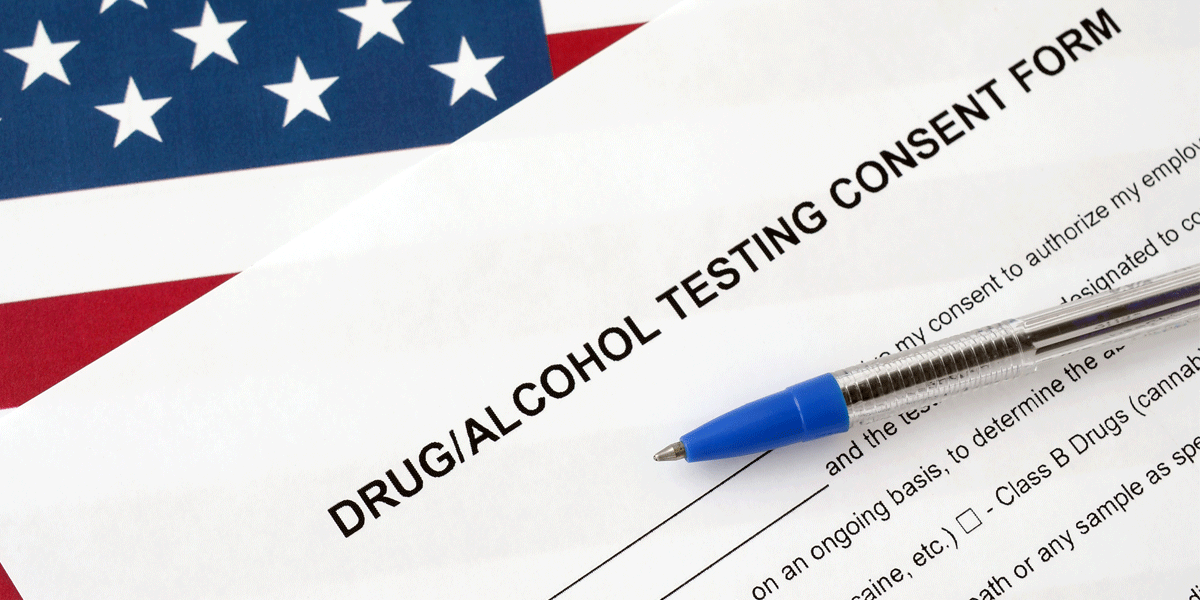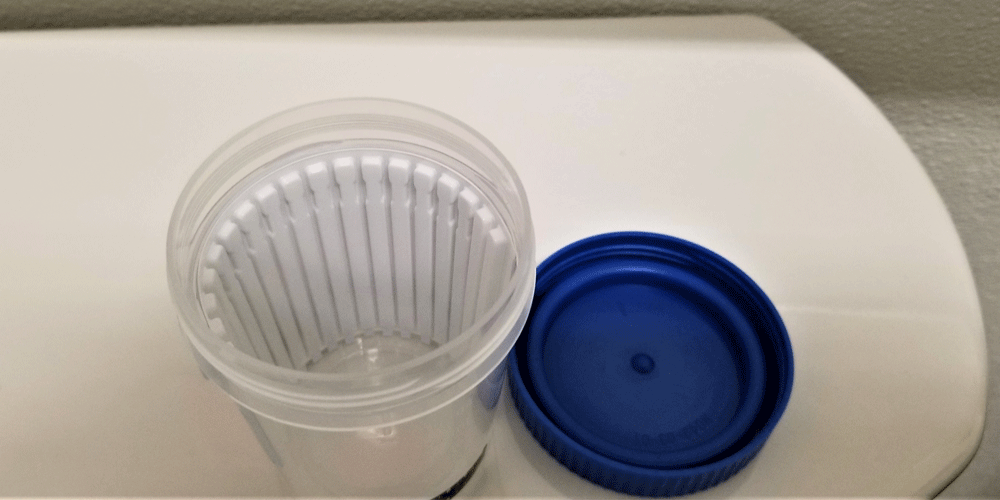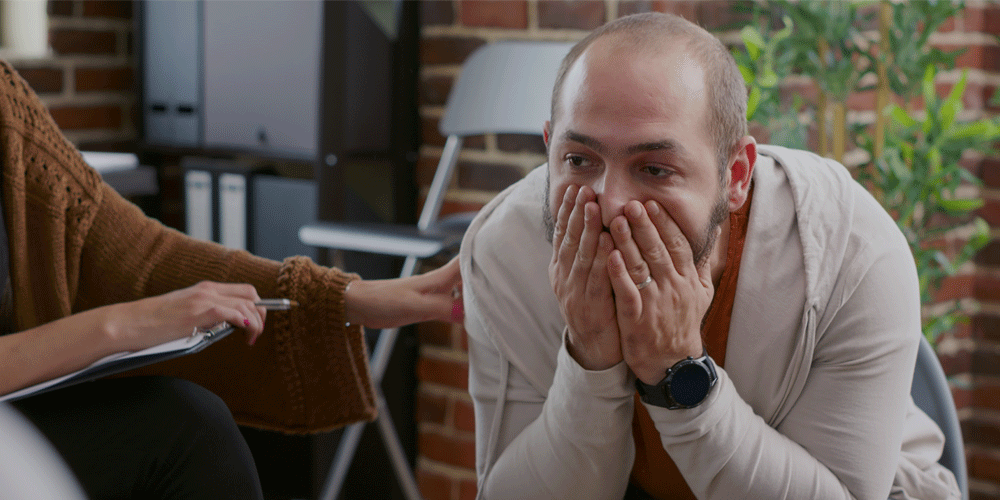Kelli has been in the trucking industry since 2003. She got her start working in compliance for a trucking carrier that specialized in government freight. She has been the compliance manager with ATS since 2017.
- DOT random drug testing (and other forms of drug testing)
- Failed drug tests and refusals
- Your next steps if you fail a drug/alcohol test
- The Substance Abuse Professional (SAP) Program
Have you failed a random Department of Transportation (DOT) drug test or alcohol screening and you’re trying to figure out what to do next? You’ve come to the right place.
There are probably a lot of emotions swirling through your head right now. You may feel as if you made a terrible mistake and you might be scared that you've ruined your chances in the trucking industry.
Here at Anderson Trucking Service (ATS), we're dedicated to ensuring drivers are familiar with safety protocols and understand how to maintain compliance.
Failed drug tests are often considered a taboo subject, but it's important to talk about. This article will help you understand your next steps.
DOT Random Drug Testing
As a truck driver, you may be subjected to alcohol and drug screenings for a variety of reasons. That includes pre-employment screenings, random screenings, reasonable suspicion screenings, return-to-duty screenings, and post-accident testing. Pre-employment screenings and return-to-duty screenings are to be expected, but you may not know when and why other drug screenings happen.
Reasonable Suspicion Drug Tests
Reasonable suspicion drug screenings can only be administered by company employees if a driver is suspected of being under the influence. Only trained employees can report this behavior and request a screening.
Random Drug Tests
Per DOT regulations, trucking companies are required to test at least 25 to 50 percent of drivers annually for drugs and 10 percent of drivers annually for alcohol.
Each company rolls this out differently. Carriers may test quarterly or monthly, but drivers are randomly selected. Once a driver is selected for a random test, their dispatcher is notified and they schedule the driver for the test. Drivers do not get more than an hour’s notice. Drivers are required to get the test done immediately; it should be the next thing they do.
Failing to go to the clinic for immediate testing can be treated as a refusal, as can delays in getting the test. Refusal to take a drug or alcohol test is treated the same way as a positive test.
A lot of drivers worry that they won't be able to get to a clinic quickly enough because they're at a shipper waiting to get loaded or unloaded. When your dispatcher is notified that you need to take a random drug test, they'll schedule it for an accommodating time, so this shouldn't be a concern.
Because there is a zero-tolerance policy for drugs, a random drug test can be required even when drivers are off-duty. An alcohol screening, on the other hand, cannot be administered unless a driver is on-duty.
Tests are truly random. One driver may be randomly selected for a test month after month. Another driver may only get selected once per year.
Third-party administrators oversee the testing program and drivers are tested at a clinic. Lab tests are released to medical release officers (MRO) who release the results to the trucking company if the results are negative (no drugs are detected). If the results are positive, the MRO is required to contact the driver.
The MRO is required to make reasonable efforts to reach the driver. Reasonable effort is defined as a minimum of three attempts over a 24-hour period. If the MRO can't reach the driver, they will contact the trucking company for assistance in reaching the driver.
Once the company gets in touch with the driver, a 72-hour clock starts. Drivers must call the MRO within 72 hours or the results will be reported as-is.
In some cases, a positive drug test result can be overturned. For instance, a driver may have a specific prescription that triggered a positive test. If that’s the case, the driver needs to provide a legitimate medical explanation and proof of a valid prescription.
As far as the company is concerned while this is happening, they only know that the results are taking a long time. They don’t know that the driver had a negative test until it’s finalized with the MRO. Once your carrier finds out you had a positive drug test, you’ll be taken off the road and next steps will be discussed.
Post-Accident Drug Tests
Post-accident testing is only required if the accident is classified as a DOT accident and there is a fatality or you receive a citation for a moving violation.
Failed DOT Drug Tests and Refusals
Drug tests can pinpoint the precise drug in an individual’s system. If any drugs categorized as prohibited show up on your drug screening, this will result in a positive (or failed) test. An alcohol test with a result of 0.04 or higher will result in a positive (or failed) test.
Testing is efficient and accurate. Alcohol screening is done via a breathalyzer. Urine analysis is used to test for drugs. Hair follicle testing is not approved by the DOT yet.
As mentioned earlier, refusal to take a drug or alcohol test is treated the same way as a positive test. Refusals may include:
- Failure to appear at a test
- Failure to stay at the testing site until testing is complete
- Failure to provide a urine sample
- Failure to permit the observation of your provision of specimen or possessing/wearing a prosthetic to interfere with the collection process
- Failure to cooperate with the collector’s directions (including failing to wash your hands after being directed to do so or refusing to empty your pockets)
- Behaving in a confrontational manner
Per regulations, drivers should maintain at least four hours between their last drink and when they begin driving. However, most carriers have no tolerance policies. Drivers should not drink in or near their trucks. If you’re under a load or on the road, don’t consume alcohol.
Next Steps After Failing a DOT Drug Test
When a company finds out one of their drivers has failed a drug or alcohol screening, drivers are taken off the road.
If you violate DOT drug and alcohol regulations, you’re unable to perform DOT safety-sensitive duties until you go through a SAP program. This includes the evaluation, referral, and education or treatment process.
After you are pulled off the road by your dispatcher, your company is required to send you a list of substance abuse professionals in your area along with their address and phone number. The list will be sent with a certified signature required.
A SAP, or substance abuse professional, is appointed by the DOT and needs to have specific credentials. They’re certified to evaluate drivers who’ve violated DOT drug or alcohol regulations and they recommend education, treatment, testing, and aftercare.
This is the end of your company’s involvement with you and the SAP program. Your company will not pay for the program and they won’t talk to your SAP unless your SAP requests it. Your SAP may call the company and ask questions, and companies can send them what they need, but that’s it.
It’s your choice to go through the SAP program. If you don’t go through the program, you’ll never be able to work in the trucking industry again. After you fail or refuse a drug or alcohol test, the DOT requires all drivers to complete the SAP program before they can perform DOT-sensitive duties again. So, if you ever want to be a truck driver again, you absolutely must go through a program.
However, some carriers will work with or contract with you after you’ve undergone the SAP program and some will not. That means that even if you complete the program, many carriers still won’t work with you again because they have a zero-tolerance policy for failed drug and alcohol tests. Because the risk of relapse is high, many carriers don’t want the liability that can come with re-hiring or hiring drivers who’ve gone through the SAP program.
This can have a huge impact on your next steps. If the carrier you want to drive for isn't SAP-friendly, you may decide to simply leave the trucking industry and pursue another path. Before you decide to pursue a SAP program, keep this in mind and talk to the carriers you’re interested in to see if you’d qualify to drive for them upon the program’s completion.
Or, you may elect to go to a trucking company that will work with drivers once they complete the SAP program, including one of the following SAP-friendly carriers:
Please note: ATS is not a SAP-friendly carrier.
The Truck Driver SAP Program
The SAP program begins with an evaluation, where a SAP will determine if you have a problem and if you need treatment. If it’s determined that you have an addiction to drugs or alcohol, treatment will be recommended. The SAP will closely monitor you as you go through treatment. You’ll need to complete all treatment steps required by your SAP.
Any time a driver tests positive, refuses to test or a carrier has actual knowledge of a drug or alcohol violation, it’s reported into the Drug and Alcohol Clearinghouse. Your SAP will record your progress in the Clearinghouse. You begin in the red. As you progress and your SAP enters info, you’ll slowly move into the green until you finish the program. Any trucking company can view this record in the Clearinghouse.
Depending upon your treatment, you may be able to return to driving after a few months. However, it could take years for some drivers. Once your SAP is satisfied that you’ve completed the treatment you need and you’ve met all conditions, you’ll have to do return-to-duty drug testing. As long as you don’t fail the test, you can return to duty.
For the next five years, you’ll essentially be “on the hook” with your SAP. You’ll be subjected to a set number of unannounced follow-up drug and alcohol screenings. This is in addition to being enrolled in a DOT-regulated random drug and alcohol testing program through your carrier.

Qualify to Work at the Best Trucking Companies
If you’ve failed a DOT drug or alcohol test and you’re trying to decide if you should undergo the SAP program, carefully consider your options in the future. Which carriers are SAP-friendly? Which carriers aren't? Are these companies that you’d ever like to work for?
You must also keep in mind that regulations are always changing. A carrier that might not accept a SAP program now may accept one in the future.
If you want to stay in the trucking industry, don’t give up hope. Complete your program and choose a SAP-friendly company to work for.
A long list of other behaviors can disqualify you from the trucking industry. We’ve put them together in one article so you can understand what will disqualify you, as well as what top-paying carriers expect.



